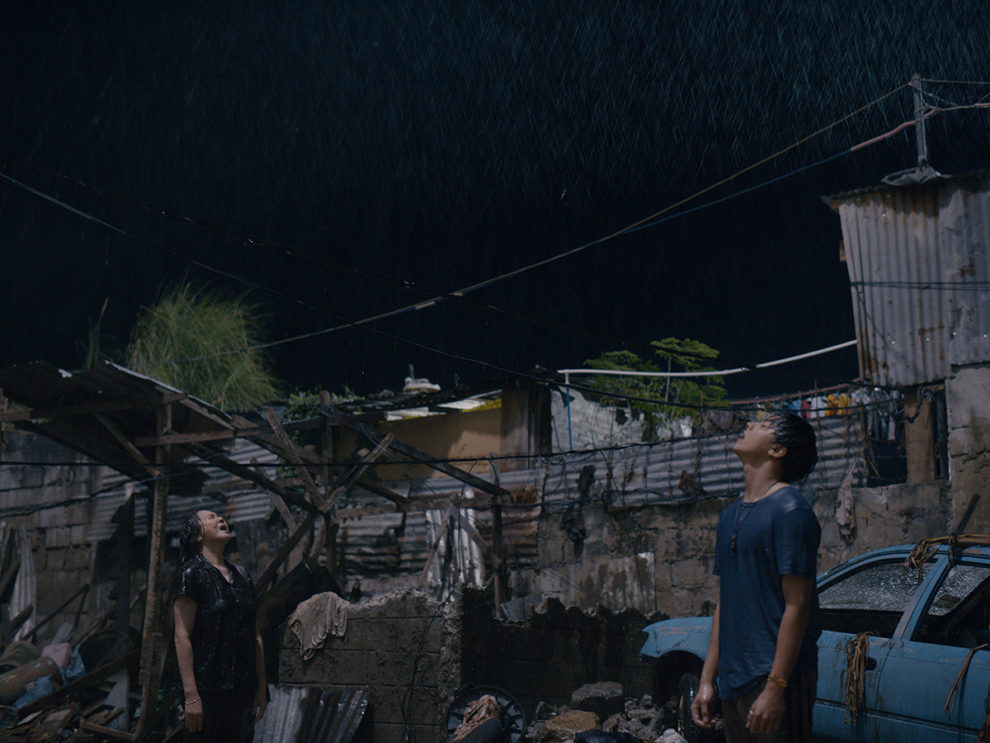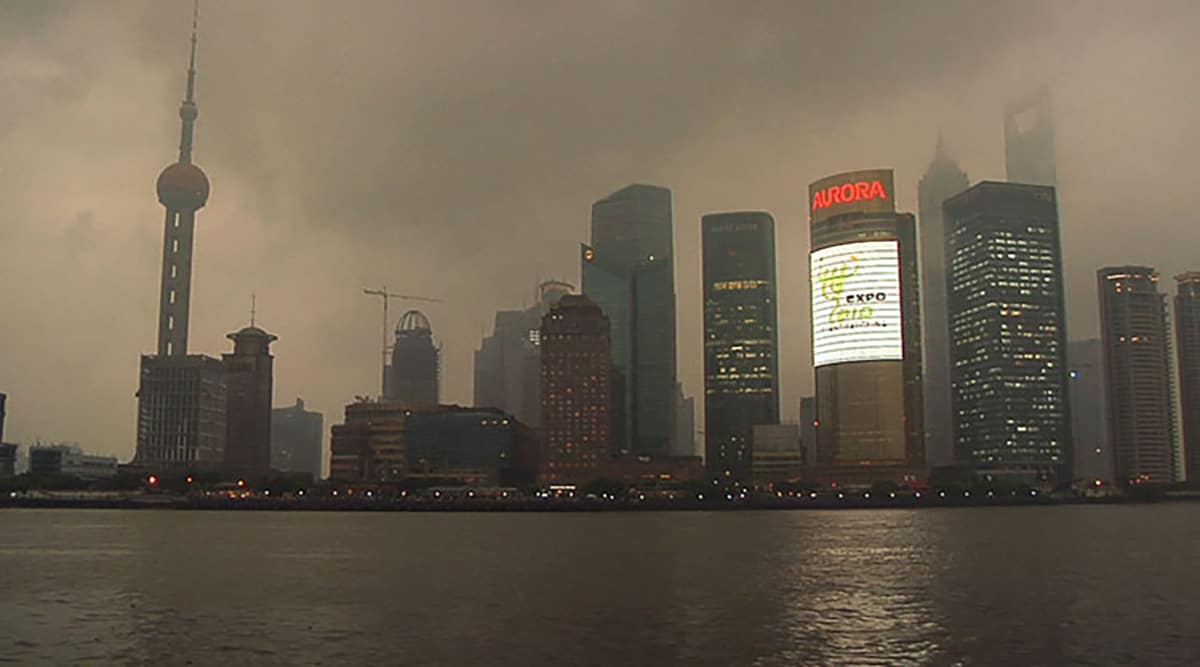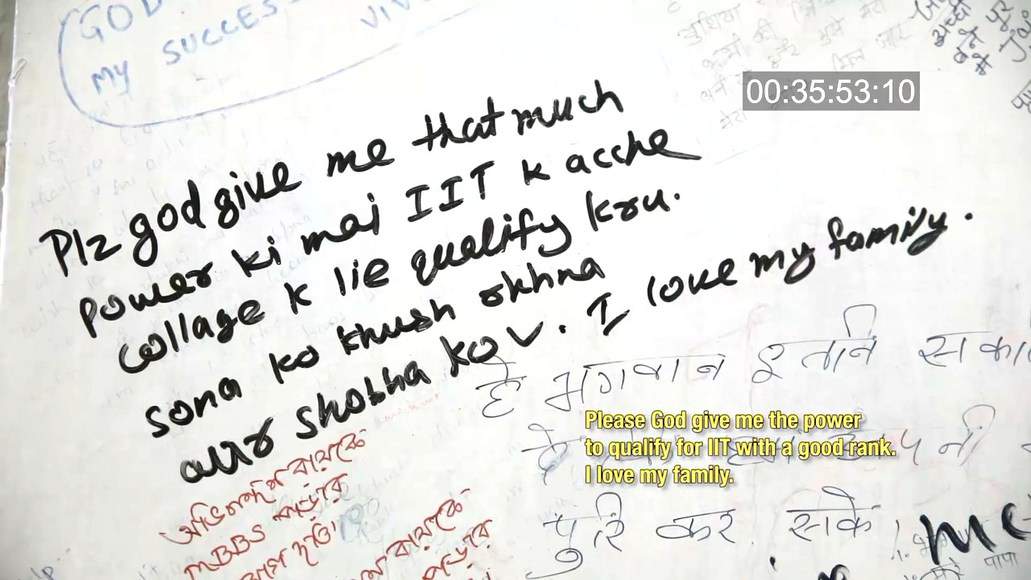Having watched a number of Manatad's works as an editor (particularly his collaborations with Khavn) and a number of his short films, it had become clear to me that he really has what it takes to become a great filmmaker. “Whether the Weather is Fine” proves the fact in the best fashion.
“Whether the Weather is Fine” is screening in Locarno Film Festival

On November 8th, 2013, the strongest tropical cyclone ever recorded, Typhoon Haiyan, made landfall in Eastern Philippines, destroying most of the director's hometown, Tacloban. Taking the aftermath of the destruction as his foundation, Manatad revolves his story around Miguel, a desperate young man who has been suffering all his life by his inner demons that usually manifest in the form of dreams, who tries to find his girlfriend Andrea and his mother, Norma. As soon as he finds them both, he tries to convince them to leave the rundown city, but his mother is set on finding her estranged husband, while Andrea has things of her own on her mind. In the meantime, the rivalry of the two women puts even more pressure on Miguel, who eventually has to decide whether to stay on to persuade his loved ones or to leave town on his own, before the next disastrous storm devours them all.
Natural disasters are often the basis for “misery porn” movies. Manatad, however, manages to shoot a film that is anything but, implementing dark humor, magical realism and social drama in a narrative that functions as a tour guide to both the aftermath of the disaster and the current Filippino society. His approach is intensely episodic, but at the same time, the narrative comes together as a whole rather nicely, a trait that should be attributed to both his direction and Benjo Ferrer III's excellent editing.

In that fashion, the chaos and despair that followed the aftermath is communicated quite clearly, but the same applies to the critique regarding the authoritative, occasionally illogical ways the army handled the situation, with the scene where a higher officer addresses the people in a relief center being among the most memorable in the movie. That this despair also led people to absurd actions is also presented in the movie rather eloquently, both through the protagonists' actions, but also from a number of people appearing throughout the story, many of which are kids, with another scene, this time involving dancing, being equally memorable. Furthermore, the overall sentiment is also communicated through a number of surrealistic (magical realism, if you prefer) scenes that work quite well within the narrative too, while being visually impressive.
And talking about visuals, the combination of Lim Teck Siang's cinematography and Whammy Alcazaren's art direction results in a number of sequences of meaningful beauty, with particularly the ones taking place in the dark, in abandoned houses and shops, looking like a combination of Bosch and Caravaggio's work.
Apart from the aforementioned, however, the movie is also about love. Norma is desperate to find her husband because of love, while Miguel puts his life in danger in order to help both his mother and his girlfriend, again due to the sentiments he carries for them. At the same time, though, Manatad shows that in such circumstances, even love can be transformed into something extreme, with a rather brutal scene highlighting the fact in the most pragmatic fashion. In that regard, the movie also benefits the most by the acting, with Daniel Padilla as Miguel emphasizing his psychological issues, his agony and his resolve in the best fashion, with the same applying to Rans Rifol as Andrea, who is particularly impressive in the way she communicates her transformation due to the events taking place around her. The one who steals the show, however, is Charo-Santos as Norma, who presents a variety of sentiments and psychological statuses in the most artful fashion, with the combination of a sense of loss and intense resolve being particularly impressive to watch.
Lastly, through all the aforementioned, Manatad also touches on the subject of religion and how it affects people, particularly in times of need, through a number of iconoclastic but also more direct sequences.
“Whether the Weather is Fine” is a great film, featuring a rather rich context, intelligent humor, and much entertainment, all of which are wrapped in a visually impressive package that also highlights its artfulness.















